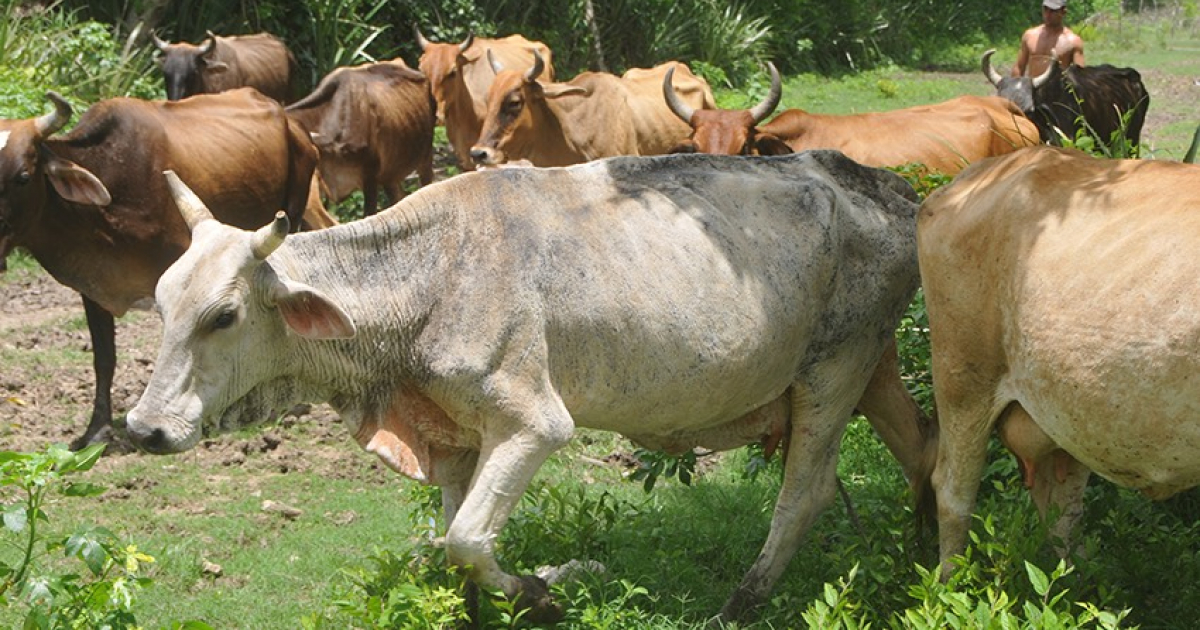
Las Tunas is the Cuban territory with the highest incidence of theft and slaughter of livestock (cows and horses). In just the first four months of this year, 1,954 crimes related to the theft and slaughter of 3,480 heads of cattle and horses have been reported. The offenses have been detected in 341 units of the agricultural sector in the province, as reported by Periódico26.cu.
These figures, which represent 29 thefts per day on average, mainly affect the municipalities of Jobabo, Majibacoa, and Las Tunas. In a meeting with the first secretary of the Communist Party in the province, Walter Simón Noris, the police explained that all forms of crime have occurred, from petty theft to robbery with violence and illegal slaughter.
In the investigations carried out by the Ministry of the Interior (Minint), agents have concluded that these crimes have been possible due to "negligence" on the part of both private and state owners. Among the reasons they list are the lack of watches during the day, areas full of weeds, and owners without land, because they are the ones who must ensure water, food, and the safety of the animals, as well as promptly report any incidents.
They also pointed out the lack of security and protection in pens and pastures, with perimeter fences in poor condition that the cattle jump over "due to not having food."
This situation, adds the local press, "fosters non-compliance with the plans for milk and meat deliveries to the industries."
In the party meeting, partial results of the exercise for controlling land and livestock possession, use, and legality were also presented. This macro inspection will take place in the eight municipalities and expects to visit 22,172 landowners, with 25,722 land files, adds the official newspaper without providing further details.
Although Las Tunas leads the national ranking of cow and horse thefts, the data is high in all provinces. Last year, a high incidence of theft, burglary, and illegal slaughter crimes was detected in Sancti Spíritus, specifically in Trinidad, Fomento, Cabaiguán, Sancti Spíritus, and Taguasco.
A report from the Livestock Sub-delegation in the province detailed that from January to March, 147 fines were imposed on cattle breeders for incorrectly identifying animals, not declaring livestock in the registry for buying and selling, failing to report births and purchases within the established deadline, moving large cattle between different registries without documentation, and for having animals without being legal landowners.
Fifteen fines were imposed for the buying and selling of large livestock without authorization from the competent authority. The report from the state agency does not mention any arrests or other actions taken against those who steal livestock from farmers.
In 2022, 82,445 animals were illegally slaughtered in Cuba: 45,315 cows and 37,130 horses. According to data from the Ministry of Agriculture, the territories where most incidents occur were Villa Clara (12,243), followed by Holguín (9,825), Matanzas (8,158), Cienfuegos (7,082), and Las Tunas (6,354).
The breeding of horses has steadily decreased over the last five years in Sancti Spíritus. In the last five years, more than 24 thousand horses have been lost due to theft and illegal slaughter in the Sancti Spíritus territory. In addition to the decrease in the number of horses in the province, breeders also face challenges in promoting the breeding of these animals.
The loss of horses in Sancti Spiritus is also influenced by theft and illegal animal sacrifice. Between 2017 and 2021, 19,119 animals were lost in the territory, while in 2022, they exceeded 5,000.
What is your opinion?
COMMENTFiled under: